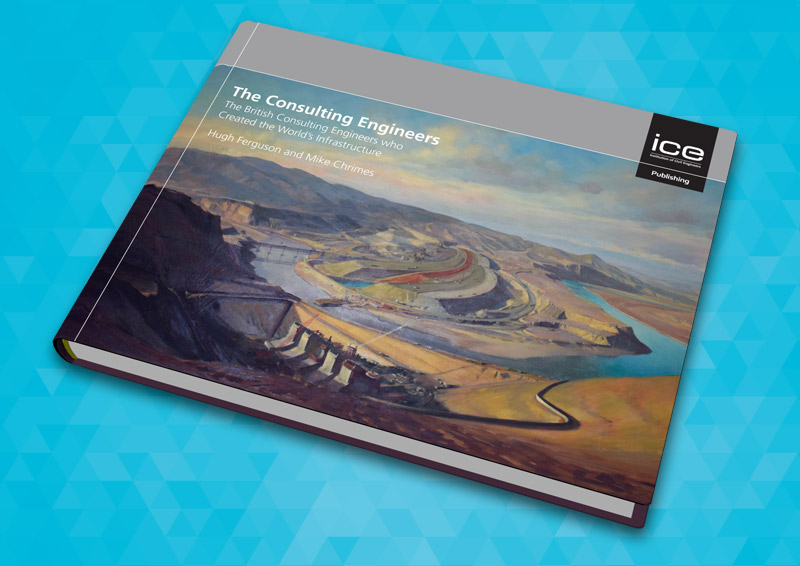Prof Gordon Masterton, OBE DL, President of the Institution of Civil Engineers 2005-06, and the chair for the ICE Panel for Historical Engineering Works, reviews The Consulting Engineers, highlighting not only the projects but also the fascinating personalities covered in the book.

- Updated: 14 Apr 2020
- Author: Prof Gordon Masterton
The Consulting Engineers is the third great work of engineering history from Hugh Ferguson and Mike Chrimes. Their trilogy began in 2011 with the story of the ICE, The Civil Engineers, followed in 2013 by The Contractors. This final volume completes the story of how British civil engineers have changed the world, painting a rich canvas of achievement and impact that few professions can aspire to.
As well as being a racy and entertaining read for practising engineers, this volume will appeal to anyone interested in the personalities behind the businesses that created the world’s key infrastructure. Across 340 pages can be found stirring tales of nation and empire building; battles against the odds to design transport networks, water supply projects, public health schemes, power sources, great public buildings, and the great bridges that are civil engineering’s favourite icons. The projects are all here, but, importantly, so are the human stories of the personal drive and business growth of the people behind the projects. But this is no hagiography – the authors do not flinch from describing their occasional failures and setbacks.
The fruits of engineering can often be feats of achievement whose audacity non-engineers can merely marvel at but, without historians, the stories of the people behind the mega-projects would remain obscure. Engineers are doubly fortunate to have Hugh Ferguson and Mike Chrimes to research, record and popularise that story of engineering and engineers, not unreasonably comparable to what Samuel Smiles did to reveal the contributions of the great engineers to 19th Century readers.
One of the unique features of this book is the fold-out family tree of international consulting engineers. It tracks the story of the formation, growth, acquisition or winding-up of the key consulting engineering partnerships and companies, mostly of British origin, but many since acquired by organisations that began in the US, Canada, Netherlands, Denmark or Sweden. But to label global companies that employ global talent with the nationality of their most recent acquirer is flawed. The inevitability of global growth is global convergence, and just as accountancy practices have consolidated since the 1960s, we have seen a similar journey of consolidation in consulting engineering as firms seek to mitigate the risk of single-country economic cycles. And there will be more mergers to come. The fold out will be the first part of The Consulting Engineers to go out of date.
The book reveals the versatility and flexibility of consulting engineering through the centuries. The infrastructure we take for granted today would be jaw-droppingly futuristic to an engineer from 1850. Airports, spaceports, satellites, electrified railways, motorways, nuclear power stations - all these and more would be science fiction to a Telford, Rennie or a Stephenson. Given the accelerating pace of change, we can speculate that engineers from 2020 should be just as astonished at whatever our infrastructure looks like in 2070. Which gives confidence that the future will still need inventive, ingenious consulting engineers capable of playing their part in addressing the existential challenges we now face.
I warmly commend this great book. The knowledge, the scholarship and the attention to detail adopted in a Ferguson - Chrimes endeavour is without parallel. And being their third and largest joint publication, it is a fitting finale to their trilogy. Every engineer should have them – and share them widely to inspire young people of talent to join the profession most likely to influence the future.
Find out more about The Consulting Engineers: The British consulting engineers who created the world's infrastructure, available in print and as an eBook.
Discover the other titles from Hugh Ferguson and Mike Chrimes including:
-
The Civil Engineers: The Story of the Institution of Civil Engineers and the people who made it, print and eBook
You can also purchase them as a print set and save 15% on the individual purchase price.
